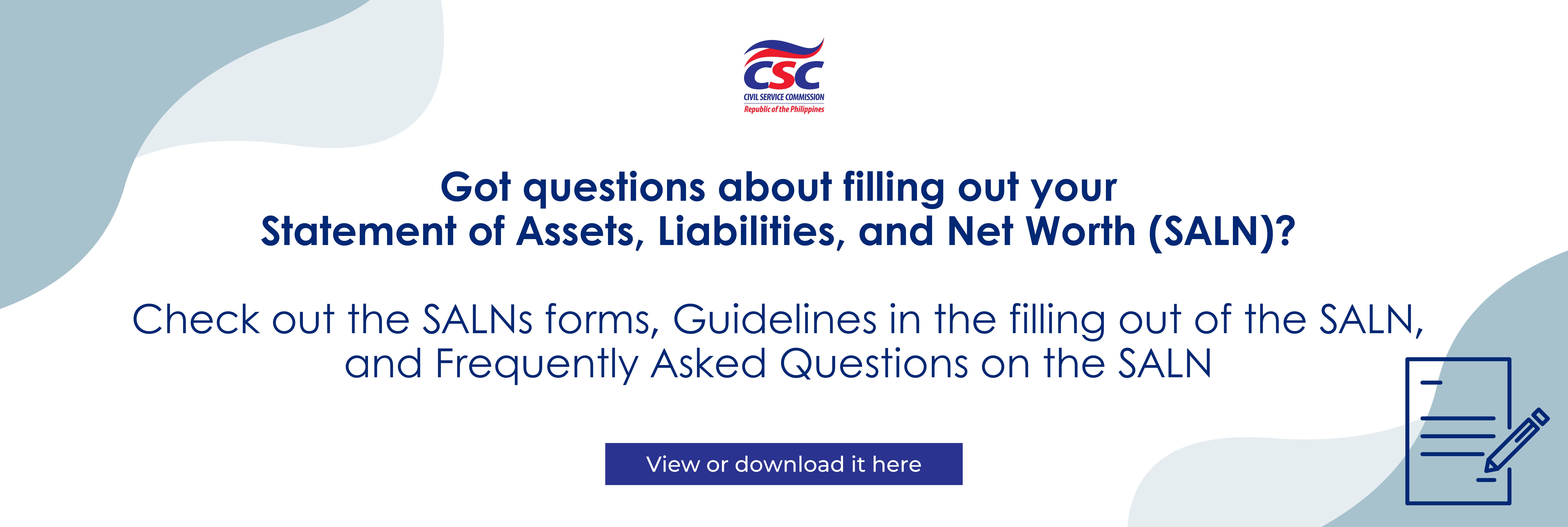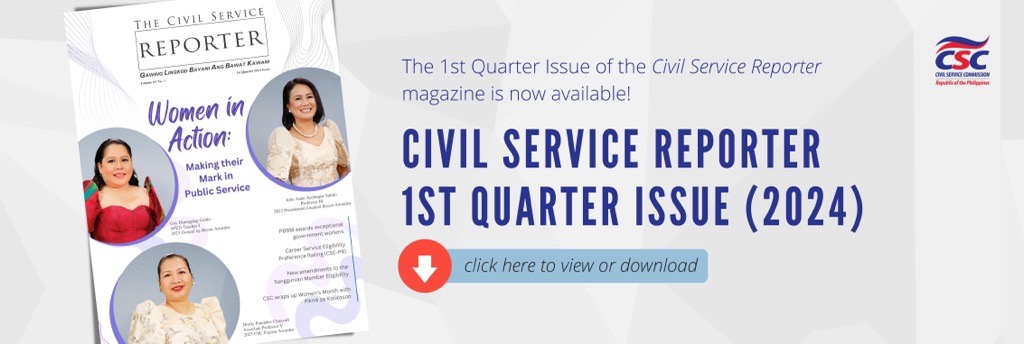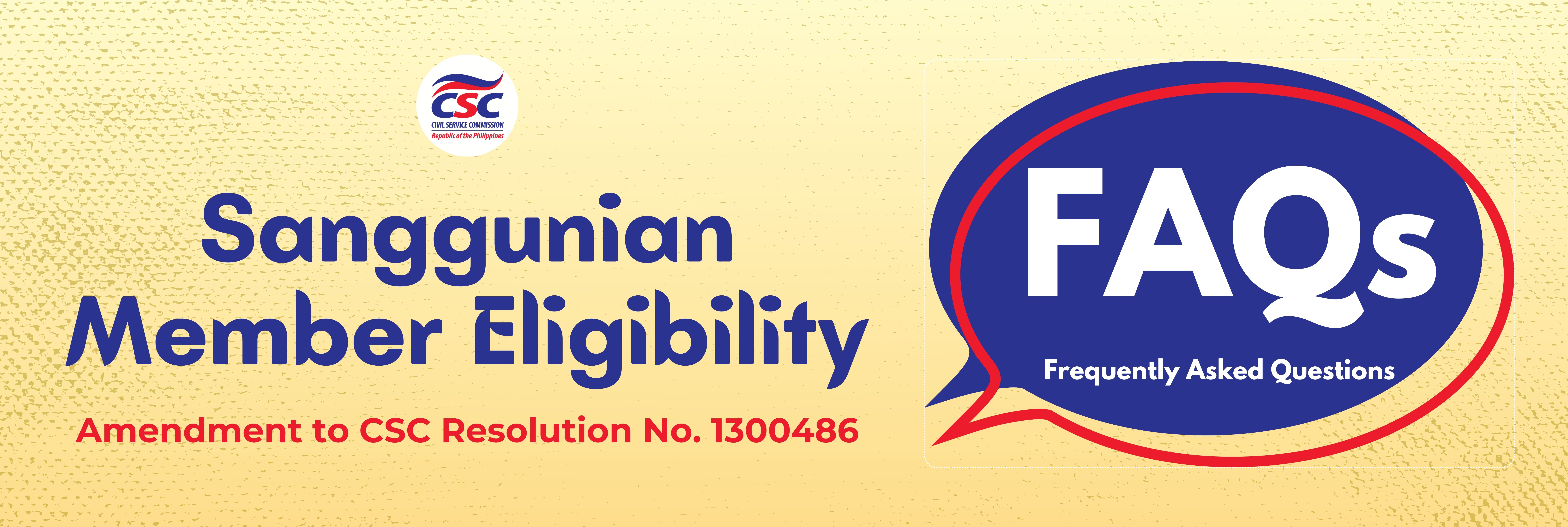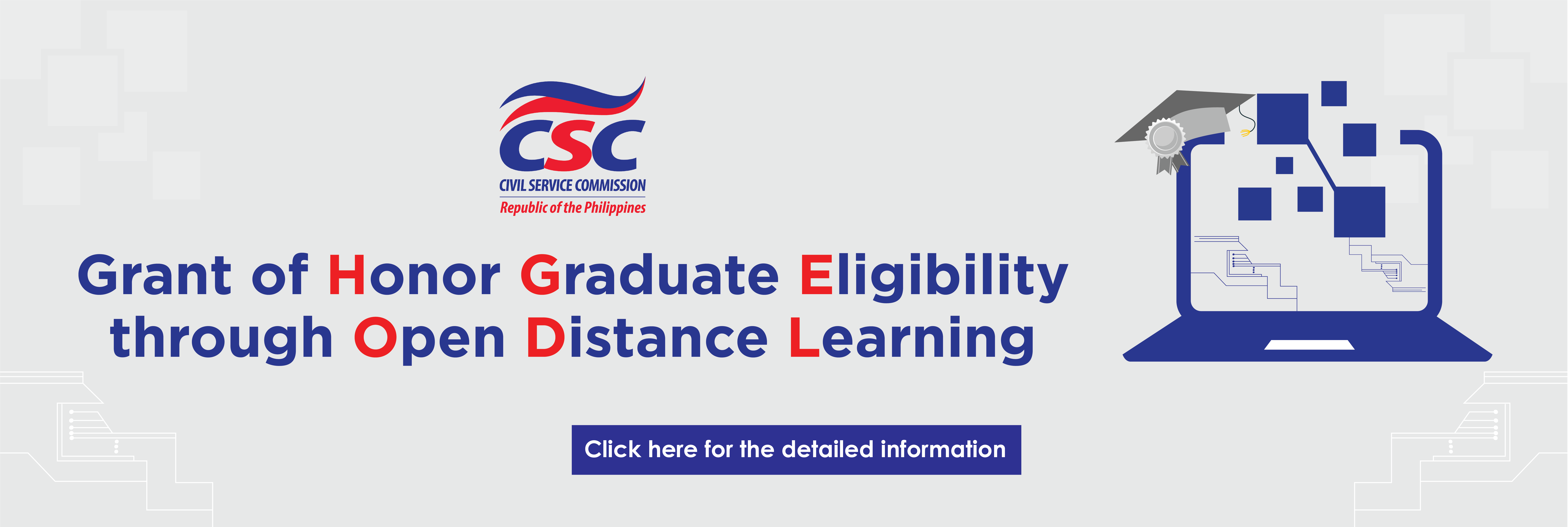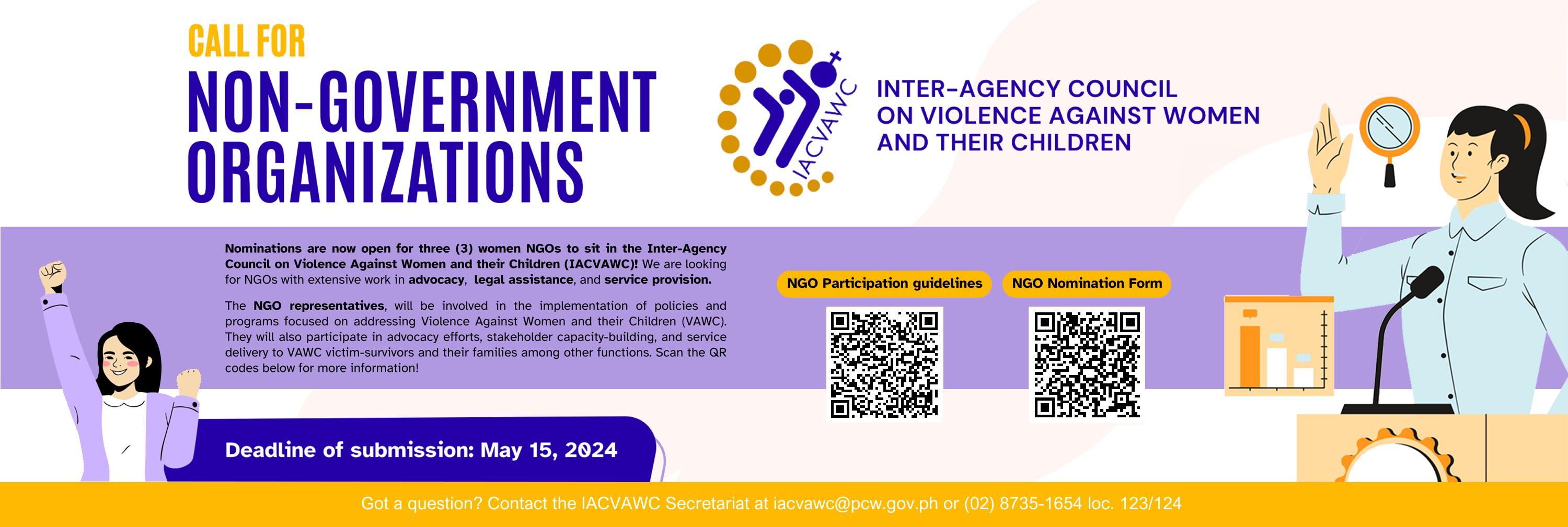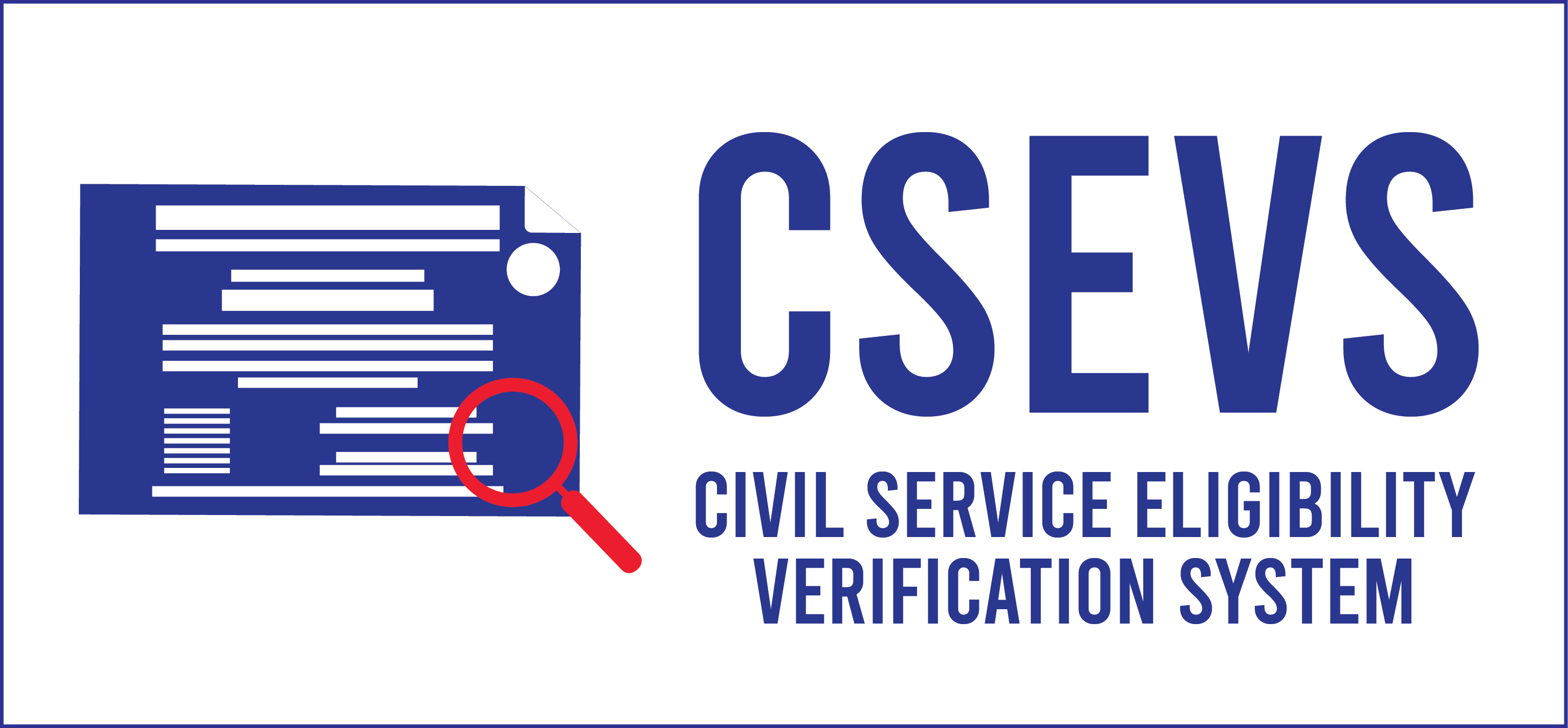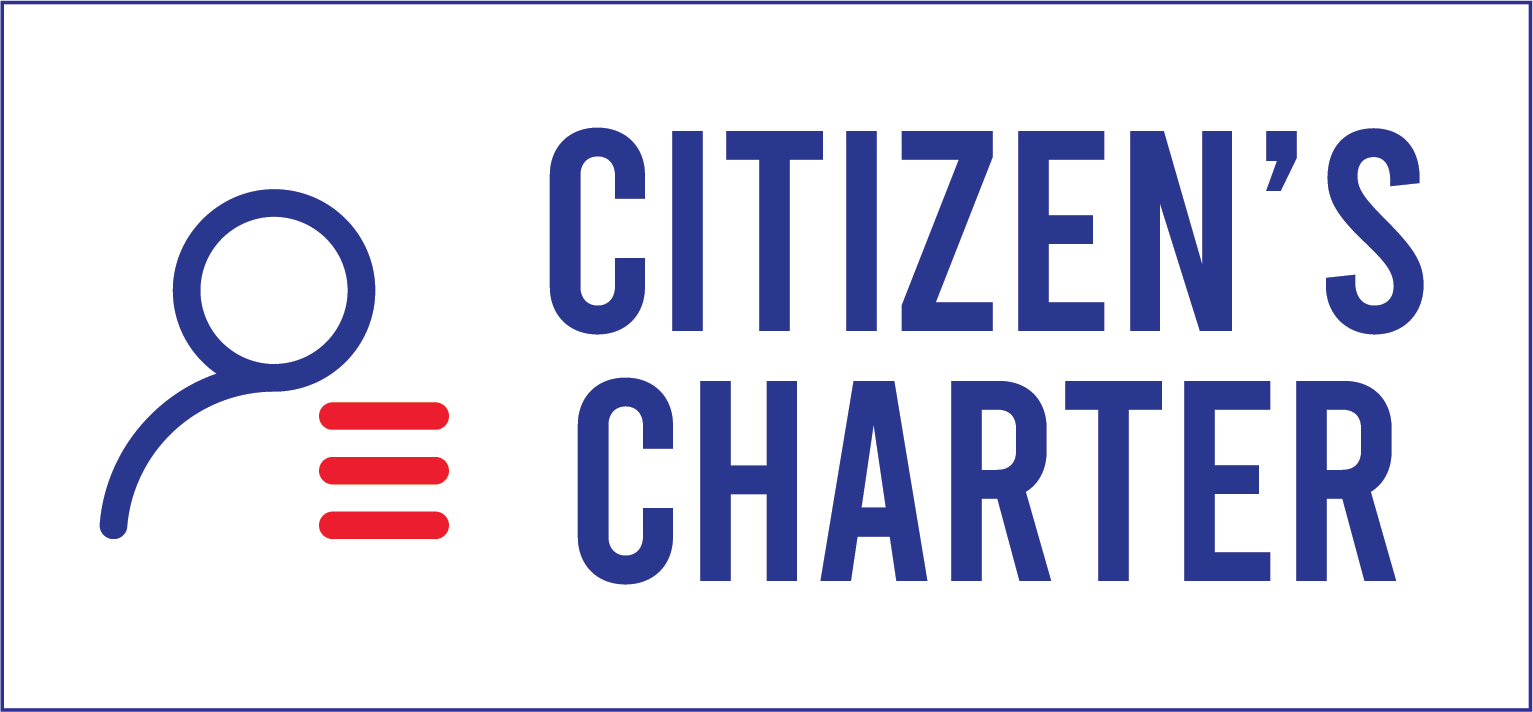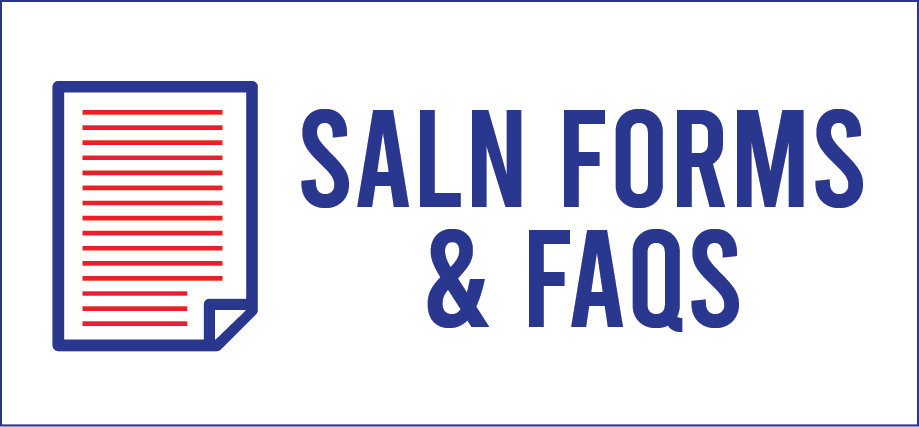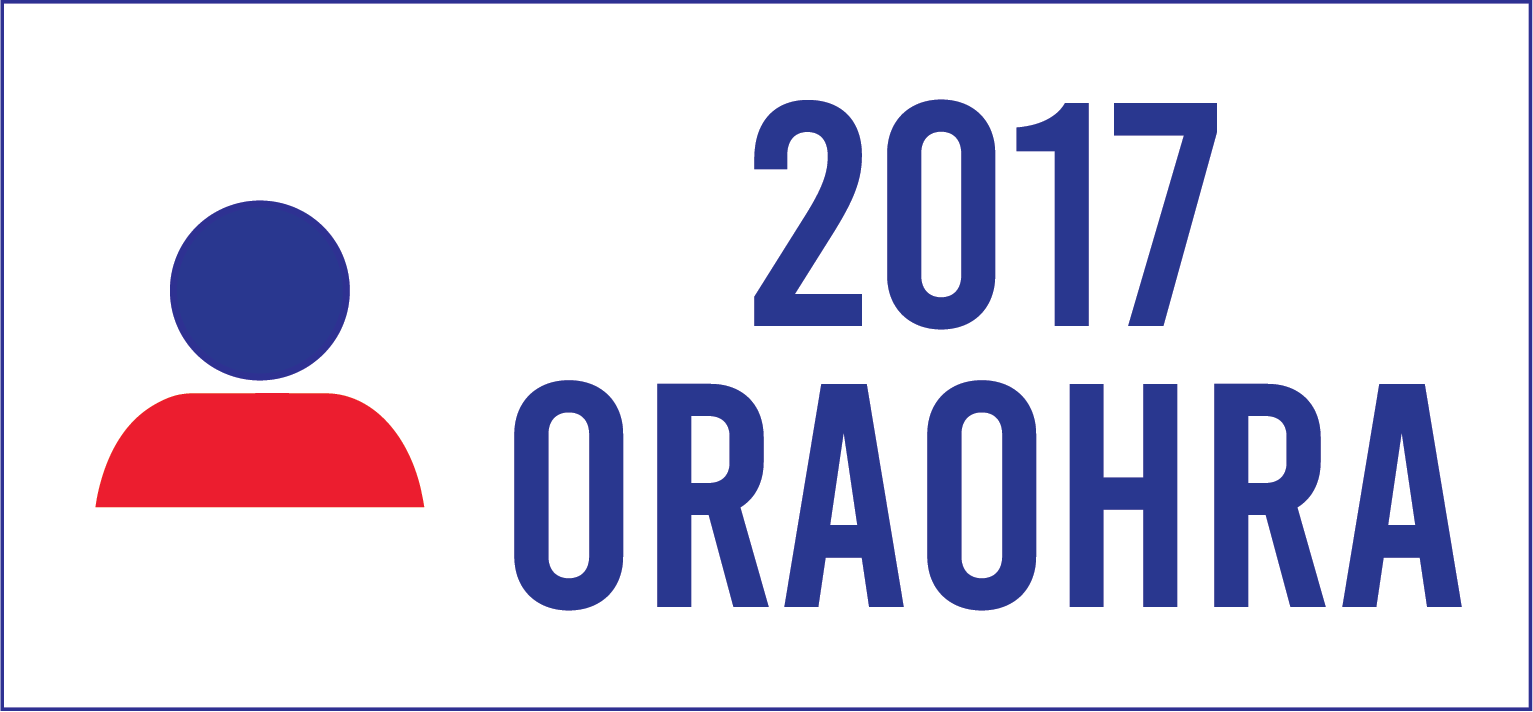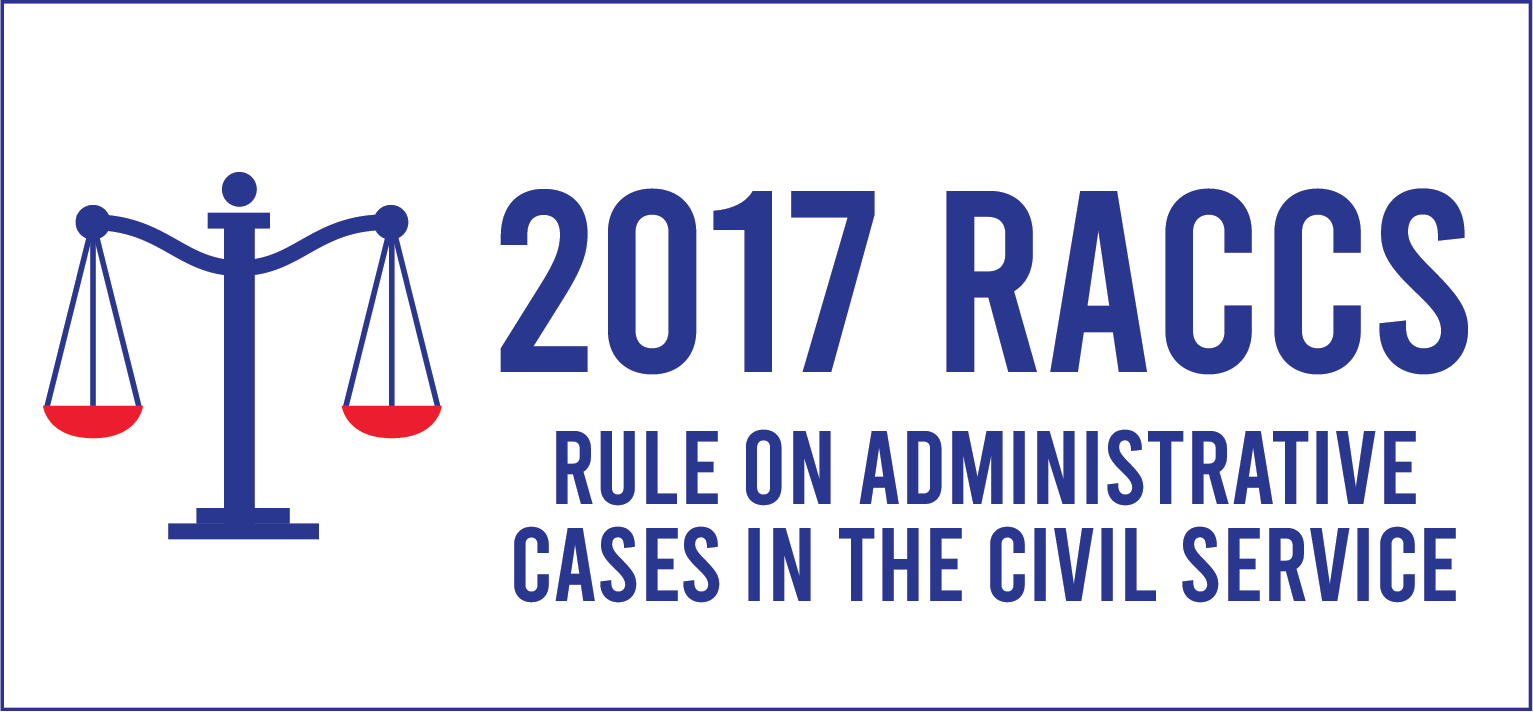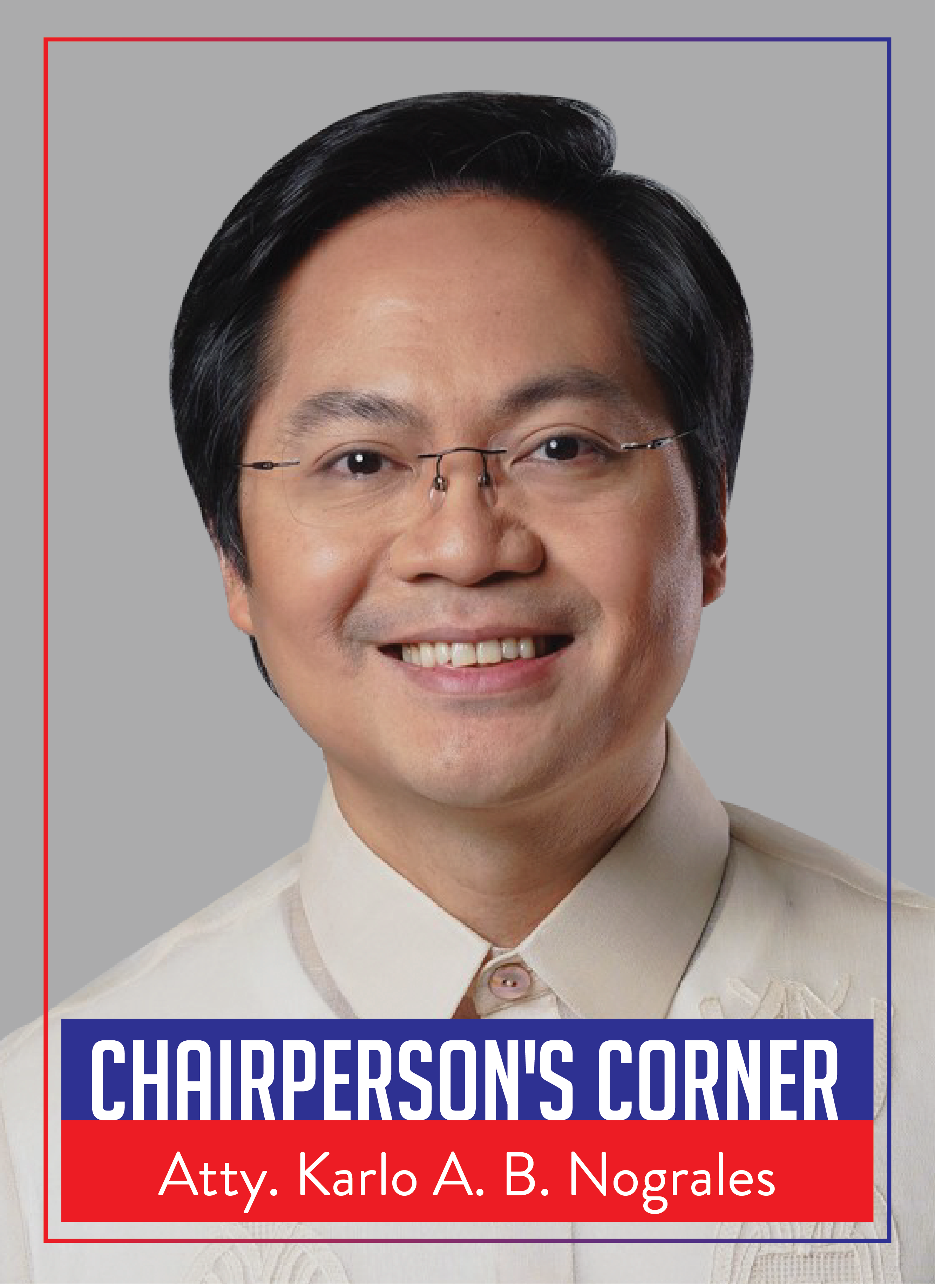Government agencies may resume filling-up of vacant positions, issuance of appointments, among other human resource actions guided by the Interim Guidelines on Appointments and Other Human Resource Actions (IGAOHRA) for the Period of State of Calamity Due to COVID-19 Pandemic.
The announcement was made by the Civil Service Commission (CSC) through Resolution No. 2000659 promulgated on 8 July 2020 which laid down the parameters on hiring for first and second level positions, including second level executive/managerial positions in the career service, and those appointed to the non-career service who are non-presidential appointees during State of Calamity.
The IGAOHRA takes effect retroactively or on 16 March 2020, the date of the declaration placing the entire country under State of Calamity. It shall remain in force until lifted.
In recruiting and selecting candidates, agencies shall adopt internal guidelines that will allow online recruitment and selection processes such as online competency assessments, video conferencing for interviews and selection board deliberations. Agencies should provide CSC Regional Office and CSC Field Office concerned a copy of said guidelines.
In addition, electronic signatures on copies of appointment are now allowed with the head of the agency ensuring authenticity, certifying its use, and submitting specimen signatures to the CSC RO concerned.
Appointees who will assume their duties during the effectivity of the ECQ/MECQ may be allowed to report through the alternative work arrangements adopted by the agency or within thirty (30) days from the lifting of the ECQ/MECQ.
The administration of oath of office may be done through virtual modes such as video conferencing provided that the appointee was furnished a copy of the appointment through e-mail and receipt is acknowledged with the electronic signature affixed. Those who have taken the oath of office and assumed the duties of the position are entitled to receive salary without awaiting the approval/validation of the appointment by the CSC.
The imposition of the ECQ/MECQ and other general community quarantine does not extend the probationary period of appointees availing of the alternative work arrangements adopted by the agency. But, for those whose nature of work could only be performed onsite, the probationary period is extended for the duration of the quarantine period.
On the required publication and posting of vacant positions, the nine-month validity period of publication pursuant to Section 29 of the 2017 Omnibus Rules on Appointments and Other Human Resource Actions (ORAOHRA) is extended for the period equivalent to the duration of the enhanced community quarantine (ECQ) or modified enhanced community quarantine (MECQ) imposed in the area where the agency is located. Reckoning is based on the date of its lifting. Thus, the duration of the ECQ/MECQ is not included in the counting of the nine-month validity period of publication.
However, if the vacant position is not filled-up within the said extension, the agency is required to re-publish and post the vacancy as well as submit the electronic copy of the Request for Publication of Vacant Positions (CS Form No. 9, Revised 2018) to the CSC Field Office (CSC FO) concerned through e-mail.
Agencies are allowed to transmit appointments to CSC Field Offices via e-mail together with the Appointment Transmittal and Action Form (ATAF) for regulated agencies or Report on Appointments Issued (RAI) for accredited/deregulated agencies, including the requirements for regular appointments within 30 calendar. On the other hand, hard copies must be submitted within sixty (60) calendar days upon the lifting of the ECQ/MECQ.
Appointments submitted through e-mail may be approved/validated if the appointee meets the qualification standards of the position subject to revalidation upon submission of the original copies of the appointment, plantilla of position, and other supporting documents required under ORAOHRA, and verification of civil service eligibility of the candidate. In case of disapproval/invalidation of appointments, the 2017 Rules on Administrative Cases in the Civil Service (RACCS) will be followed.
Click here for the full text of CSC Resolution No. 2000659 and CSC Memorandum Circular No. 14.

